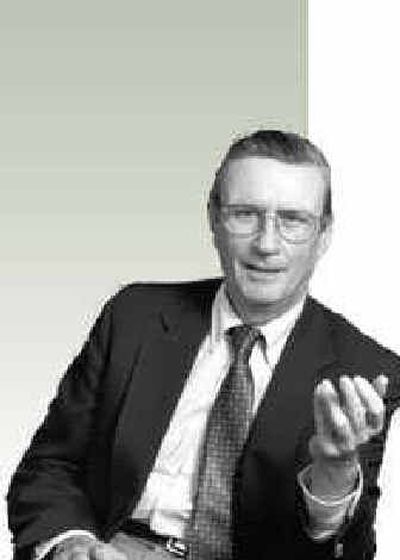Priest to speak at Gonzaga on politics in church

He’s known as the dissident priest, the one who raised his voice against the pope’s teachings on birth control.
But among fellow scholars and other Roman Catholics, the Rev. Charles Curran ranks among the leading scholars in Christian ethics today.
Nearly four decades ago, Curran made headlines when he led a group of 600 Catholic theologians in opposition to Pope Paul VI’s encyclical rejecting artificial contraception.
As a result, Curran almost lost his job at Catholic University of America. Although he remained under Vatican investigation for seven years, he continued to write and teach on moral theology.
His progressive stance on such contentious issues such as divorce, contraception and homosexuality eventually led to his removal from the university in 1986.
Now a professor at Southern Methodist University – a historically Protestant institution – and the author of a new book on Pope John Paul II, Curran will present a lecture at Gonzaga University on Thursday titled “The Church and Politics.” His speech, which is part of Gonzaga’s “Catholicism for a New Millennium,” will address whether or not the church can take a political stand and how all this fits into the moral imperative of working for a just society.
“The most important role of the church, and also the least controversial, is to teach and motivate individual Christians to work for a better society in all aspects of their lives,” wrote Gonzaga religious studies professor Pat McCormick, describing Curran’s talk. “The most controversial areas concern whether the church, as a whole or its leaders, should take stands on specific issues facing society or should support particular political candidates.”
During his lecture Thursday, Curran also will answer questions concerning the decision of some bishops to deny communion to politicians who support abortion rights as well as the current legislative initiatives on gay unions, McCormick said.
Ordained in Rome in 1958, Curran is a priest of the Diocese of Rochester in New York. Early in his career, he led the effort to oppose “Humanae Vitae,” Pope Paul VI’s encyclical that prohibits all forms of artificial birth control.
“Every act of marriage must, in itself, stay destined towards the chance of human procreation,” according to the encyclical, and “all acts are forbidden which stop the natural effect of any marriage act, whether done before the act or during it, or after it is over.”
In response, Curran and other Catholic theologians met in Washington, D.C., in July 1968 and drafted a statement disagreeing with the encyclical’s ethical conclusion about birth control. It said that Catholics could dissent from “authoritative, noninfallible church teachings” and that “Catholic spouses could responsibly decide in some circumstances to use artificial contraception.”
After the Vatican declared he wasn’t suitable or eligible to teach theology at Catholic University, Curran taught at several other institutions, including Cornell, before becoming SMU’s Elizabeth Scurlock University Professor of Human Values.
He has written and edited more than 50 books in the area of moral theology.
In his latest, “The Moral Theology of Pope John Paul II,” Curran is critical of the pontiff in two main areas: the pope’s refusal to accept change in the area of sexuality, despite the fact that he accepts change in the political realm; and John Paul II’s “top down” approach to certain social issues.
Curran “continues to be one of the most important voices in moral theology in the American Catholic Church,” McCormick said.